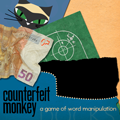Counterfeit Monkey — 189 of 292
Emily Short
Section 3 - Childhood
Childhood-colonialism is a memory. The printed name is "my youthful pranks". The max is 1. Understand "my/your" or "youthful" or "youth" or "pranks" as childhood-colonialism.
Carry out looking in Old City Walls:
trigger childhood-colonialism.
Carry out remembering childhood-colonialism:
say "Oh, I used to play that I was an Atlantean guard defending the battlements against invading redcoats, armed only with a saber and an, uh, an o-removing musket. So they turned into red cats, you see. My mother explained later that letter removal hadn't ever taken the form of muskets and that I had my chronology wrong. So I do know better.
And my father gave me an even longer and even less interesting lecture about how the British colonial government wasn't entirely a bad thing and how it didn't do to be too gleeful about mentally shooting some young soldier who probably didn't have a choice about being there."
Childhood-bedroom is a memory. The printed name is "your austere childhood". The max is 3. Understand "my/your" or "childhood" or "austere" as childhood-bedroom.
Carry out examining the funnel:
trigger childhood-bedroom. [Your youth in contrast with this privileged childhood]
Carry out examining the school:
trigger childhood-bedroom.
Carry out remembering childhood-bedroom:
if the uses of the noun is:
-- 1:
say "[b]Your Childhood Bedroom[/b][line break]A small white room with a free-standing wardrobe full of modest home-made clothes; a plain-hewn bookshelf with Bible, study guides, a dictionary and thesaurus; and a sampler on the far wall that reads, 'Our pursuit of perfection is our gift to God.' It's done in very exact cross-stitch.";
-- 2: say "[b]Your Childhood Bedroom[/b][line break]You hung your newly ironed clothes in the wardrobe. Your clothes were frumpy foolish things. But they were made for you by your parents with great care. Your father made the wardrobe himself. Your mother sewed all your clothes. She had an eye for col[our] and detail. It shows in the neatness of the hems, the crisp piping on a pocket, the surprising yellow buttons on a pale blue cuff. [paragraph break]Every day you wore those clothes was like being arm[our]ed in love.";
-- 3:
say "[b]Your Kitchen[/b][line break]Your mother sits at the kitchen table sipping a strong tea while she coaches you through your routine. This is what informed your life, every day. Every morning, the hours of spelling practice. Your mother's words about how you must nurture your talent in gratitude to the deity who bestowed it on you.";
-- otherwise:
say "The recollections blur together now, rejected and useless.";
